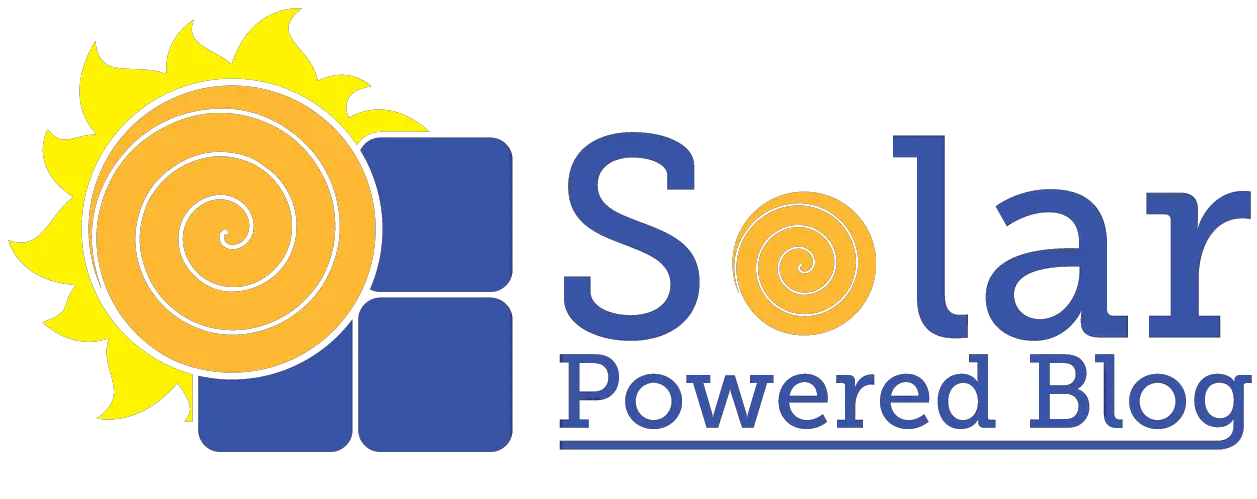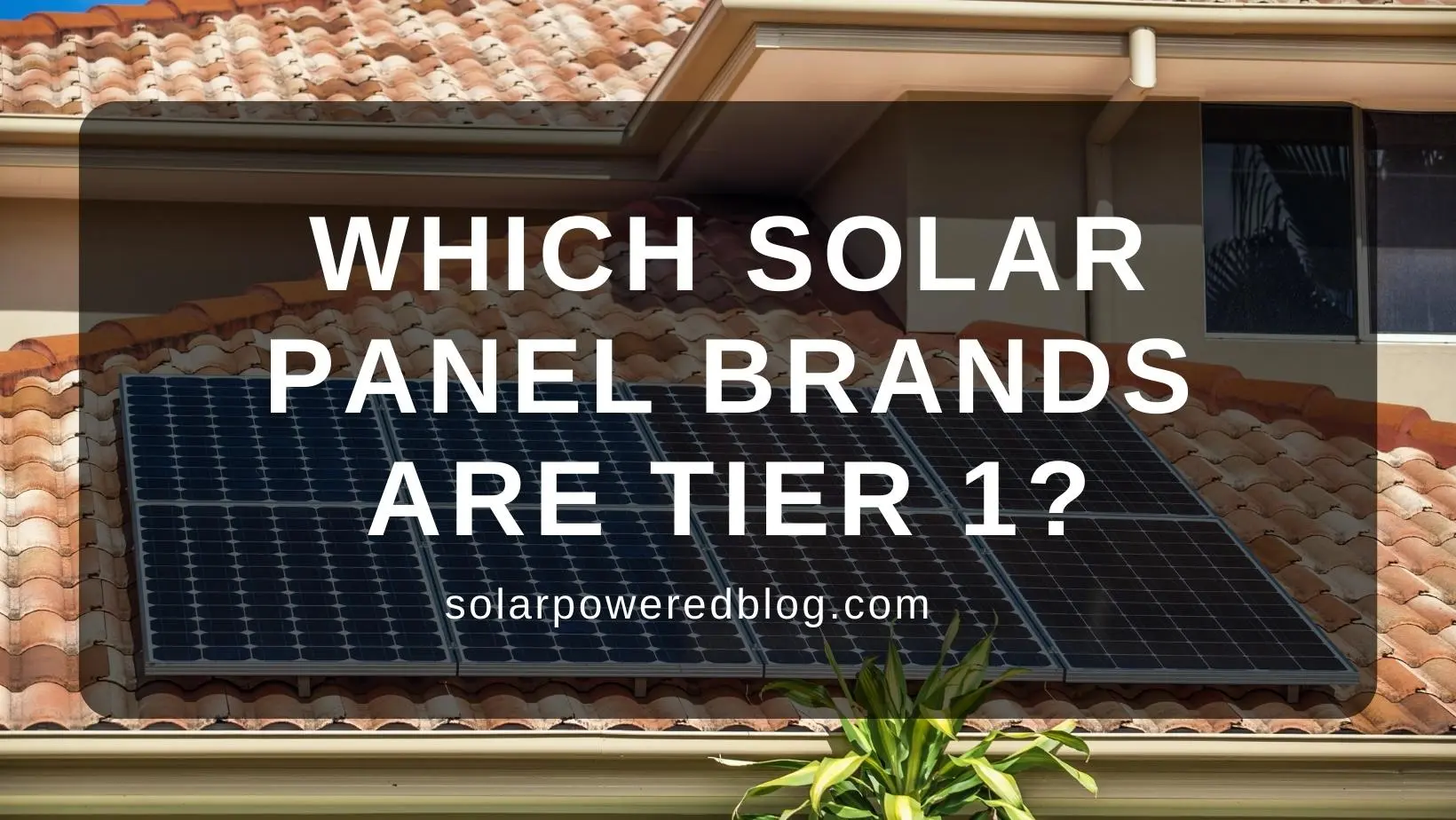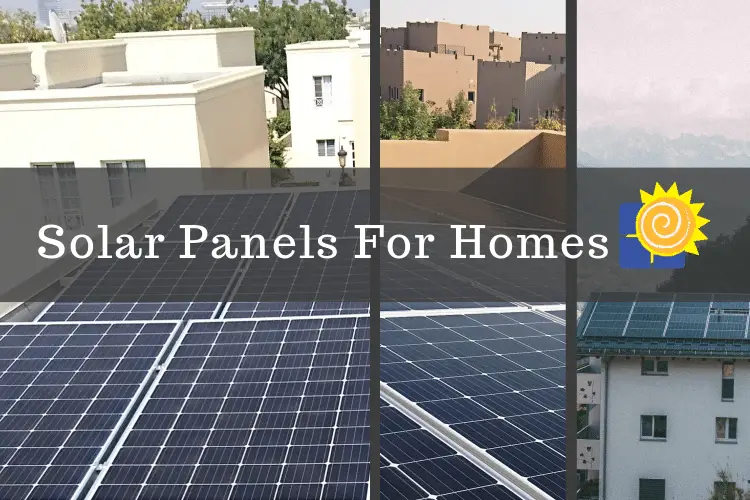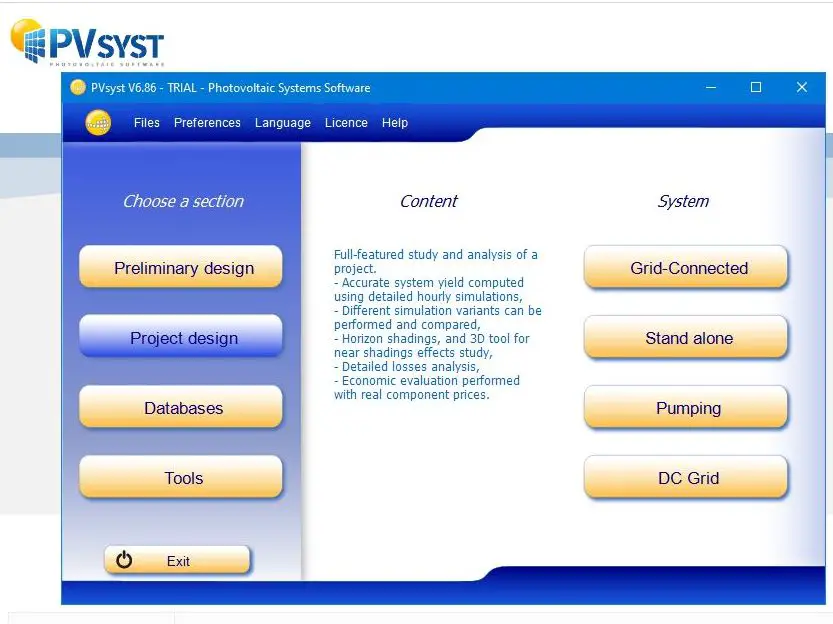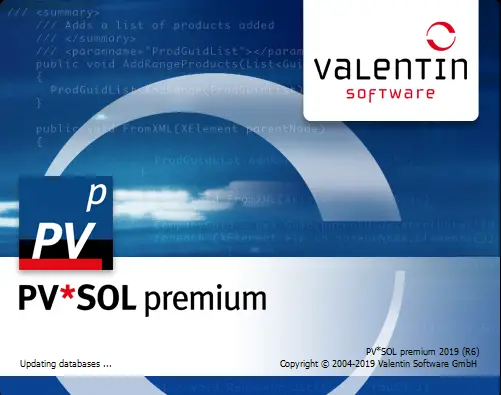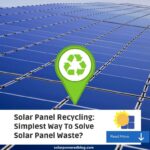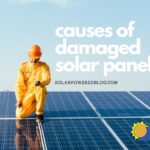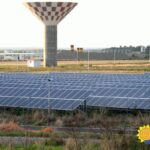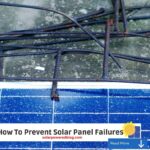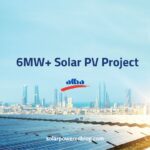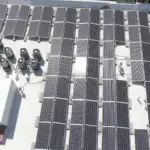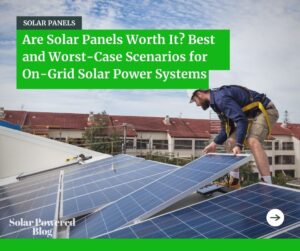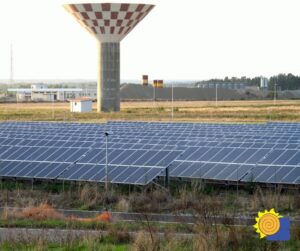In the vast landscape of renewable energy, there existed a term that whispered promises of excellence – “Tier 1” solar panels. This is not just a story of labels; it’s a chronicle of unraveling the hidden depths and the untold adventures of solar technology.
But in all seriousness, it is by exploring beyond the “Tier-1” label and examining the intricacies of solar panel specifications, that we can ensure we select the most suitable and effective renewable energy solutions. While a manufacturer’s reputation could provide a sense of credibility, it should not be the sole determining factor in our decision-making process. Instead, let’s focus on factors such as performance, efficiency, technological advancements, independent testing, and customization possibilities to make a more informed decision.

Tier-1 Solar Module Manufacturers List
We will be discussing more on the label of “Tier 1” for solar panels in this article. We will also provide the list of solar module brands that belong to this classification and it will be updated from time to time.
Truth be told, these lists serve as marketing tools primarily driven by financial considerations. The Bloomberg list, for instance, is subscription-based and carries a significant cost, which can be a barrier for smaller players in the solar panel manufacturing scene. Furthermore, the list explicitly states that a tier 1 categorization does not constitute a recommendation for the company or its products. Therefore, these lists do not aim to inform consumers about the suitability of a specific brand for their particular application.
New BNEF Categorization Criteria

According to BloombergNEF’s 1Q 2024 Global PV Market Outlook, the photovoltaic (PV) market is expected to see continued growth, driven by several key factors. Here’s a link to their report.
The BNEF’s report highlights a robust growth trajectory in the photovoltaic industry, driven by factors such as decreasing module prices and abundant component supply. Despite this growth, profitability remains a challenge for manufacturers. China’s dominance in the market is evident, with significant capacity additions in 2023. The forecasts for 2024 indicate continued growth, albeit potentially limited by local constraints. The polysilicon supply is expected to be sufficient for the year, although some suppliers have halted production due to pricing concerns. The tightening of criteria for tier 1 manufacturers indicates a more stringent evaluation process, potentially impacting market dynamics. While the industry is expanding, challenges such as profitability and market dynamics remain key considerations for stakeholders.
The key factor is BloombergNEF’s updated criteria. Previously, to be a leading solar panel manufacturer, companies had to supply panels for at least six projects, each supported by six different banks, with each project exceeding 1.5 MW. Starting in early 2024, BloombergNEF changed its criteria. Now, projects need to be over 5 MW to count.
Q2 2024 BloombergNEF Tier-1 Solar Panels
BNEF Bloomberg has just published its comprehensive report on tier 1 solar panel manufacturers for Q2 2024.
The following list is not arranged in any specific order.
- ZNShine Solar
- Yingli
- Waaree
- VSUN
- Vikram Solar
- Trina
- Tongwei
- Suntech
- Sunpro Power
- Sumec / Phono Solar
- SolarSpace
- Seraphim
- Risen Energy
- Renesola
- Longi Solar
- Leapton Energy
- Jolywood
- JA Solar
- HT-SAAE
- Hanwha Q-Cells
- GCI-System
- First Solar
- ET Solar Inc. / EliTe Solar
- Eging
- DMEGC
- Chint/ Astronergy
- Canadian Solar
- Anhui Daheng (DAH Solar)
- more – to be updated
Q1 2024 BloombergNEF Tier-1 Solar Panels
BNEF Bloomberg has published its report for tier 1 solar panel companies for Q1 2024. The list below are not arranged in any particular order.
- Canadian Solar
- Jinko Solar
- Longi
- JA Solar
- Trina Solar
- EliTe Solar
- Jinergy
- AESOLAR
- Jolywood
- more – to be updated
Q4 2023 BloombergNEF Tier-1 Solar Panels
Here you go. The latest list of tier one solar panel manufacturers for the fourth quarter of 2023 has been released. The list is solely organized based on alphabetical order, indicating that no other method or criterion has been used for its arrangement.
- Adani / Mundra
- AE Solar
- AKCOME (Jiangsu)
- Anhui Daheng (DAH Solar)
- Anhui Huasun
- Boviet
- Canadian Solar
- Chint / Astronergy
- DAS Solar
- DMEGC
- Eging
- ET Solar Inc / Elite Solar
- Exiom Group
- First Solar
- GCL System
- Haitai Solar
- Hanersun
- Hansol Technics
- Hanwha Q Cells
- Heliene
- HT-SAAE
- JA Solar
- Jetion
- Jinko
- Jinneng / Jinergy
- Leapton Energy
- LONGi Solar (Longi Green)
- Luxen Solar
- Maxeon (SunPower)
- Neo Solar Power (NSP) / URE
- Recom
- Renesola Yixing
- Risen Energy
- Seraphim / SEG
- Sharp
- Solarspace
- Sumec / Phono Solar
- Sunova Solar / Thornova
- Sunpro Power / YH Sunpro
- Suntech
- Tongwei
- Trina Solar
- Ulica Solar
- Yingli Silfab
- ZNShine
Q3 2023 BloombergNEF Tier-1 Solar Panels
Anyways, here’s the updated table listing the recognized Tier-1 solar module manufacturers according to BloombergNEF as of Q3 of 2023.

The table above just got updated on the 21st of August 2023, by BloombergNEF.
Q2 2023 BloombergNEF Tier-1 Solar Panels
Here’s a table listing the recognized Tier-1 solar module manufacturers according to BloombergNEF as of Q2 of 2023.
| Solar Panel Manufacturer | Country of Origin |
|---|---|
| ZNShine | China |
| Yingli | China |
| Waaree | China |
| VSUN Solar | China |
| Ulica Solar | China |
| Trina | China |
| Tongwei | China |
| Suntech | China |
| Sunpro Power | China |
| Sumec / Phono Solar | China |
| Solarspace | China |
| Solar-Fabrik | Germany |
| Sharp | Japan |
| Seraphim | China |
| Risen Energy | China |
| Renesola Yixing | China |
| Recom | France |
| Neo Solar Power / URE | Taiwan |
| Sunpower/ Maxeon | United States |
| Luxen Solar | China |
| LONGi | China |
| Leapton Energy | China |
| Jolywood | China |
| Jinnerg/Jinergy | China |
| Jinko | China |
| Jiangsu Akcome | China |
| Jetion | China |
| JA Solar | China |
| HT-SAAE | China |
| Heliene | Canada |
| Hanwa Q-Cells | South Korea |
| Hanersun | China |
| Haitai Solar | China |
| GCL-Solar | China |
| First Solar | United States |
| Exiom Group | South Korea |
| ET Solar Inc | China |
| EGing PV | China |
| Chint / Astronergy | China |
| Canadian Solar | Canada |
| Boviet Solar | Vietnam |
| Anhui Huasun | China |

Solar Powered Blog, however, is not and will not be affiliated with any of the mentioned solar manufacturers listed above. The information provided is solely for reference purposes and does not imply any endorsement or partnership between us and the mentioned companies.
What is Tier 1 in solar panels?
First and foremost, it’s important to note that the term “Tier One” has nothing to do with the quality of the solar panels themselves. The concept of Tier One was developed by Bloomberg, a renowned financial software and data company worth billions of dollars. Bloomberg created a system to categorize solar companies based on their bankability, which is a measure of whether a big bank would be willing to lend money to the company.
Bloomberg’s system places solar companies into three tiers: Tier One, Tier Two, and Tier Three. Their classification is based on a holistic assessment of the companies from a financial perspective. To determine the tier, Bloomberg examines whether a solar company has provided its own branded and manufactured products to at least six different projects that were financed by six different banks within the past two years.
What is BloombergNEF and What Does it Do?
BloombergNEF (BNEF) is a research organization and subsidiary of Bloomberg LP, a global financial, software, data, and media company. BNEF specializes in analyzing and providing insights on the renewable energy, energy storage, and sustainable transport sectors.
It presents itself as an entity that aims to provide a range of valuable resources to support businesses, investors, policymakers, and other stakeholders in comprehending and navigating the intricacies of transitioning toward a low-carbon and sustainable economy. Their offerings could include data-driven research, market analysis, and expert commentary.
Essentially, Bloomberg tracks large-scale solar installations worldwide and collects data on the financing of these projects. They focus on projects that were financed with non-recourse financing, meaning the bank assumes the risk of the panels’ performance rather than the company’s balance sheet. In case of any issues, the bank can only utilize the solar panels as collateral, not the company’s other assets or cash.
Understanding the PV Module Tiering System
While it is important to acknowledge the value of respected module tiering systems such as the Bloomberg Module Tiering List in the solar industry, it is essential to understand the specific context in which they are most relevant. These reports primarily cater to the needs of financiers who are considering investing in ultra-large or utility-scale solar projects.
Rating agencies, such as Bloomberg, play an important role in providing insights into the credibility of solar panel manufacturers. The Tier One classification offers valuable information about the company behind the solar panels you choose for your roof. However, it should not be the sole determining factor. As Bloomberg themselves emphasize, the Tier One list should not be considered a measure of quality. Instead, it is advisable to consult with technical experts and conduct thorough due diligence when making your solar panel purchasing decisions.
How Does a Solar Panel Brand Qualify as Tier 1?
To qualify as Tier One, a solar panel manufacturer must have a track record of providing products for significant installations exceeding 1.5 megawatts. This threshold represents installations far larger than the average residential rooftop solar system, which typically measures around a few kilowatts.
While being a Tier One solar panel manufacturer indicates financial credibility, it’s important to remember that there are many reputable solar panel manufacturers outside the Tier One list. Some manufacturers produce excellent panels, offer great service, and may not be included in the Tier One classification. The tiering system, though informative, does not solely determine the quality or suitability of a solar panel.
It’s worth mentioning that accessing Bloomberg’s original report is costly and primarily intended for big companies seeking financial data, not consumers. Therefore, when a company claims to provide Tier One solar panels, it’s crucial to inquire about the basis of their claim. Often, businesses republish online lists without possessing the original Bloomberg report, which is subject to regular updates.
Criteria for a Solar Panel Brand to Be Classified as Truly Tier 1
The term “Tier 1” is often used in the solar panel industry to refer to the most reputable and reliable manufacturers. However, there is no universally accepted definition or set of criteria for what makes a solar panel brand have this label.
That being said, the following are some of the factors that are typically considered when determining a manufacturer’s Truly Tier 1 status:
- Bankability: This refers to the financial stability and longevity of the manufacturer. These companies are usually financially stable and have a proven track record of success in the industry.
- Manufacturing scale: They generally have large-scale production facilities and are capable of producing a high volume of solar panels each year.
- Vertical integration: They typically have control over the entire solar panel manufacturing process, from sourcing raw materials to final assembly.
- Product quality and reliability: They are known for producing high-quality and reliable solar panels that meet or exceed industry standards.
- Technological innovation: They often invest heavily in research and development to improve their solar panel technology and stay ahead of the competition.
It’s worth noting that the term “Tier 1” is not regulated, and some manufacturers may use it to describe themselves even if they don’t meet all of these criteria. It’s always a good idea to do your own research and compare products before making a purchase decision.
What factors should consumers consider when choosing a Tier 1 brand?

When choosing a top solar panel brand, there are several factors that consumers should consider. Here are some of the most important factors to keep in mind:
Cost
Tier 1 solar panels are generally more expensive than other brands, so cost is an essential factor to consider. Consumers should weigh the upfront cost of the panels against the long-term savings they can provide.
The cost of Tier 1 solar panels can vary depending on several factors such as the brand, model, wattage, and installation requirements. These solar modules typically range in price from $0.20 to $0.40 per watt without considering the cost of shipping, taxes, customs, etc. However, it’s important to note that solar panel prices can fluctuate due to market conditions, technological advancements, and regional factors. Additionally, installation costs, including mounting hardware, inverters, wiring, and labor, should also be considered when calculating the total cost of a solar panel system. To get the most accurate and up-to-date pricing information, it is recommended to consult with local solar installers or suppliers in your area.
Efficiency
The efficiency of the solar panel refers to the amount of sunlight it can convert into electricity. Consumers should look for panels with a high-efficiency rating, as this can help them get more power out of their solar system.
Tier 1 solar panels typically have efficiencies ranging from 19% to 23%. However, it’s important to note that there are continuous advancements in solar panel technology, and higher efficiency panels may become available in the market.
Durability
Solar panels are designed to last for many years, so durability is an important factor to consider. Consumers should look for panels that are designed to withstand harsh weather conditions and are backed by a strong warranty and support program.
These panels are manufactured by reputable companies that adhere to high-quality standards and rigorous testing processes. While the specific durability of solar panels can vary depending on factors such as manufacturing techniques and materials used, Tier 1 panels typically come with warranties ranging from 20 to 25 years.
Brand Reputation
Tier 1 solar panel brands are known for their reputation and reliability. Consumers should research the brand’s track record, read reviews from other customers, and consider the brand’s history in the solar industry. Choosing a reputable brand for your solar panels can provide several benefits. Established and well-known brands often have a track record of delivering high-quality products and reliable customer support. Their reputation is built on years of experience and customer satisfaction, giving you confidence in the performance and longevity of their solar panels.
Additionally, consider factors such as product range and availability, pricing and value for money, warranty and after-sales support, and the brand’s commitment to sustainability and ethical practices.
Conclusion
Imagine you’re planning to build a large-scale solar farm, spending millions or even hundreds of millions of dollars. Naturally, you want to ensure that the solar panels you purchase are of good quality and that the manufacturer will honor the warranty. To make informed decisions, solar farm builders rely on organizations like Bloomberg, known for their financial and information services.
If you’re not an expert and want to minimize the risk of buying a reliable brand, opting for a Tier 1 solar panel is a good approach. However, it’s essential to ask for proof and inquire about the basis of the Tier 1 claim. Some unscrupulous companies may falsely label their panels as Tier 1, so it’s crucial to verify the information and ask for documentation. May you find the list and information written above helpful in your journey to a sustainable future powered by solar panels!
Please do not forget to sign up for our email list today! Be part of the Solar Powered Fam!
